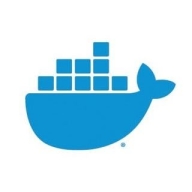

Red Hat OpenShift Container Platform and Docker compete in the containerization and application deployment market. Based on feature set and enterprise focus, OpenShift seems to have the upper hand, particularly in complex enterprise environments.
Features: Red Hat OpenShift Container Platform provides advanced auto scalability, granular control of deployments, and enhanced security options. It offers comprehensive integration capabilities for smooth application development and deployment. Docker is known for its simplicity, detailed documentation, and straightforward containerization processes. It supports rapid deployment and portability, ensuring consistent application performance across various environments.
Room for Improvement: OpenShift could enhance its networking capabilities with IP whitelisting and simplifying deployment features. The complexity of cluster infrastructure and pricing are concerns. Docker could improve stability, expand documentation and tutorials for easier onboarding, and streamline integration with Microsoft Windows while enhancing its GUI.
Ease of Deployment and Customer Service: OpenShift supports hybrid and on-premises deployments, providing users flexibility but requires significant infrastructure. Red Hat's support is responsive but inconsistent. Docker offers straightforward deployments across public, private, and hybrid clouds due to its open-source nature. Docker's support is practical but limited compared to Red Hat's enterprise-level assistance.
Pricing and ROI: OpenShift has a high cost structure based on resource consumption, suited for large organizations with significant ROI through robust capabilities. Docker is a cost-effective alternative, being open-source with paid options. Its pricing and ROI are favorable, appealing to smaller enterprises or teams needing less complexity.


Docker is a versatile container platform used for running and deploying applications in isolated environments, ensuring consistency across development, testing, and production.
Docker offers solutions for containerizing applications, automating deployments, and managing infrastructure through its robust platform. It supports CI/CD workflows, provides a development platform for container management, and simplifies the setup by using streamlined tools. Organizations leverage Docker for building microservices, running UI applications, deploying web services, and setting up secure environments. It also facilitates managing containers via Kubernetes and creating development stacks for enhanced productivity.
What are Docker's key features?Industries implement Docker for CI/CD pipelines, scaling services, and improving resource utilization. Tech companies use Docker for building and deploying their software in isolated environments. Finance and healthcare sectors deploy applications securely, ensuring compliance with regulatory standards. Educational institutions set up consistent development environments for coding labs and training students in advanced technologies.
Red Hat® OpenShift® offers a consistent hybrid cloud foundation for building and scaling containerized applications. Benefit from streamlined platform installation and upgrades from one of the enterprise Kubernetes leaders.
We monitor all Container Management reviews to prevent fraudulent reviews and keep review quality high. We do not post reviews by company employees or direct competitors. We validate each review for authenticity via cross-reference with LinkedIn, and personal follow-up with the reviewer when necessary.